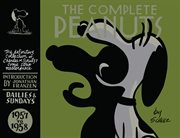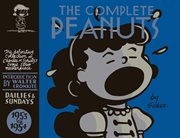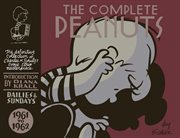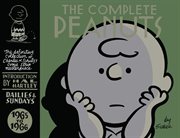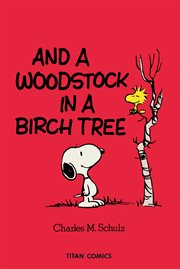The complete Peanuts Volume 4, 1957 to 1958. Volume 4, 1957 to 1958.
eBook - 2016
As the 1950s close down, Peanuts definitively enters its golden age. Linus, who had just learned to speak in the previous volume, becomes downright eloquent and even begins to fend off Lucy's bullying; even so, his security neurosis becomes more pronounced, including a harrowing two-week "Lost Weekend" sequence of blanketlessness. Charlie Brown cascades further down the hill to loser Dom, with spectacularly lost kites, humiliating baseball losses (including one where he becomes "the Goat" and is driven from the field in a chorus of BAAAAHs); at least his newly acquired "pencil pal" affords him some comfort. Pigpen, Shermy, Violet, and Patty are also around, as is an increasingly Beethoven-fixated Schroeder.... But the rising star is undoubtedly Snoopy. He's at the center of the most graphically dynamic and action-packed episodes (the ones in which he attempts to grab Linus's blanket at a dead run). He even tentatively tries to sleep on the crest of his doghouse roof once or twice, with mixed results. And his imitations continue apace, including penguins, anteaters, sea monsters, vultures and (much to her chagrin) Lucy. No wonder the beagle is the cover star of this volume.
- Subjects
- Genres
- Comic books, strips, etc
Electronic books
Graphic novels - Published
-
[United States] :
Fantagraphics Books
2016.
- Language
- English
- Corporate Author
- Main Author
- Corporate Author
- Other Authors
- Online Access
- Instantly available on hoopla.
Cover image - Physical Description
- 1 online resource
- Format
- Mode of access: World Wide Web.
- Audience
- Rated E
- ISBN
- 9781560976707
- Access
- AVAILABLE FOR USE ONLY BY IOWA CITY AND RESIDENTS OF THE CONTRACTING GOVERNMENTS OF JOHNSON COUNTY, UNIVERSITY HEIGHTS, HILLS, AND LONE TREE (IA).

